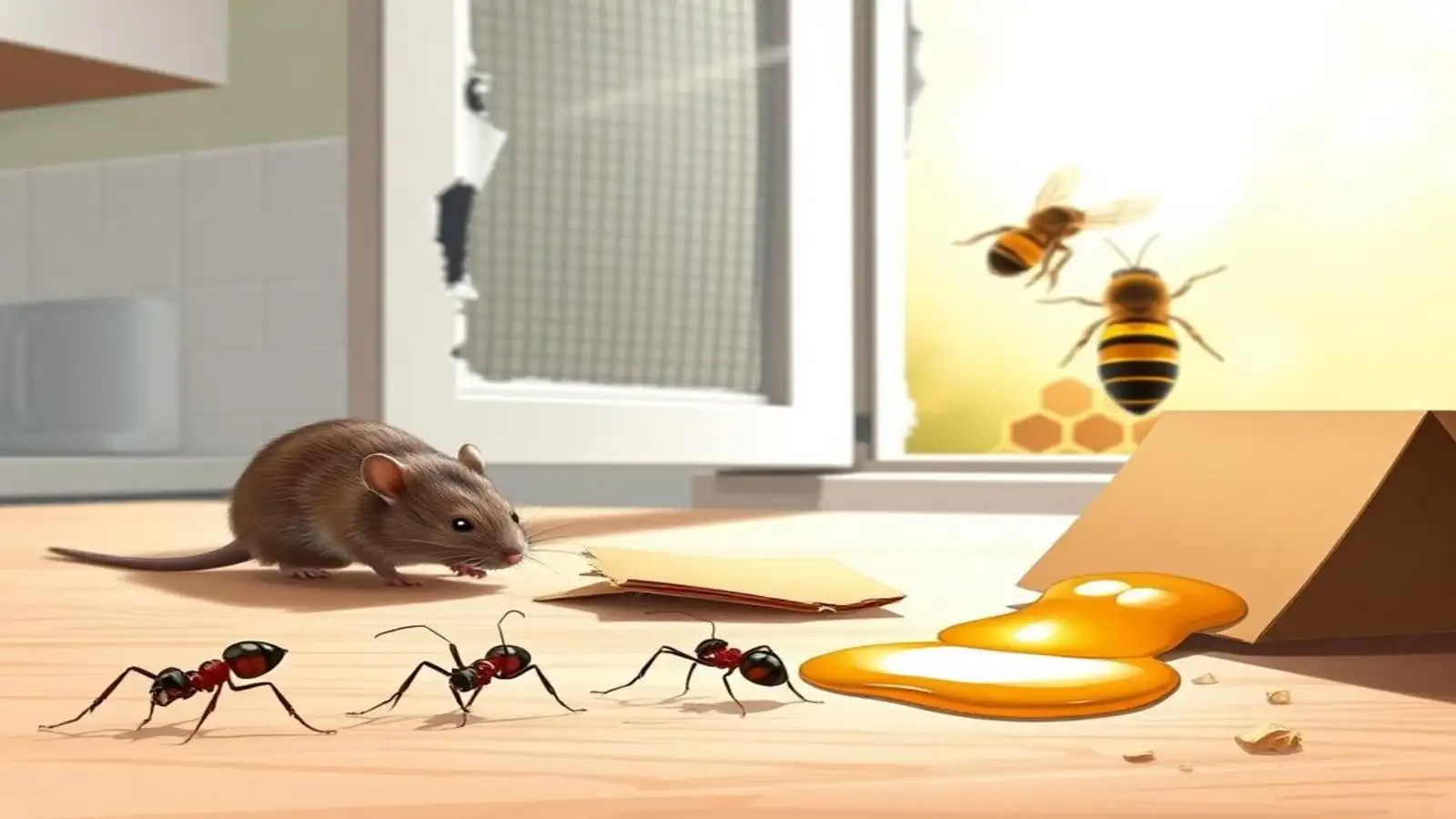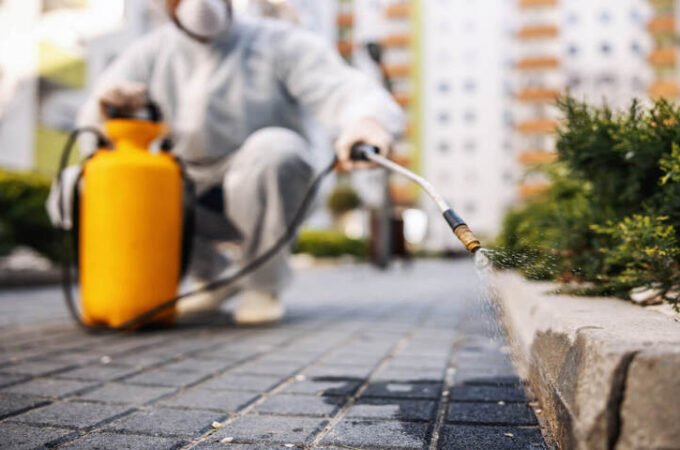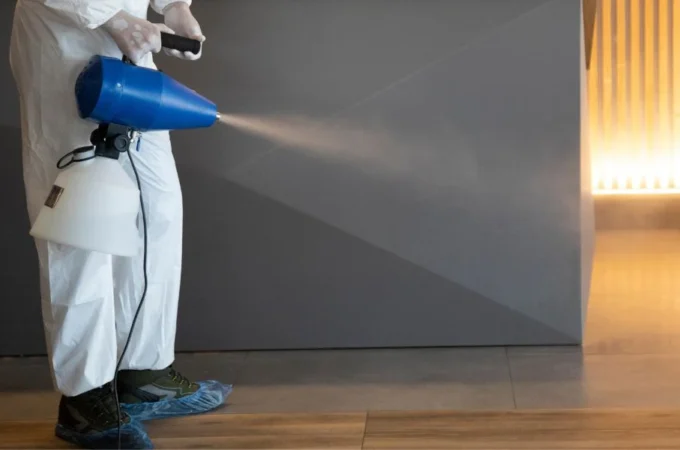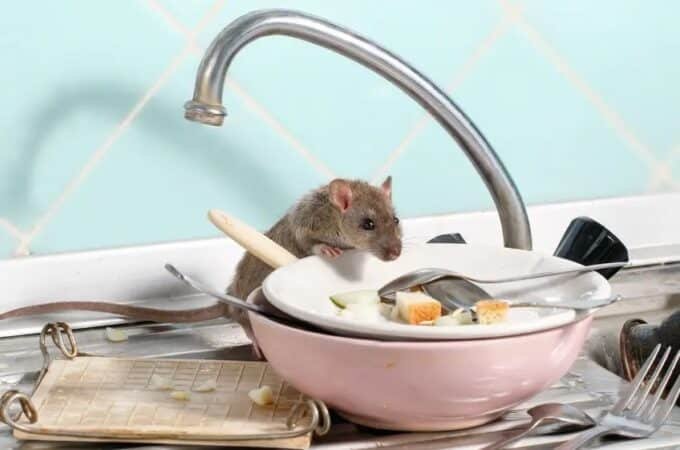
Safe and Simple Ways to Prevent Common Household Pests
Table of Contents
ToggleKey Takeaways
- Maintain cleanliness to eliminate food and water sources that attract pests, minimizing the conditions that help infestations thrive.
- Seal entry points to prevent pests from sneaking inside your home through tiny cracks and openings.
- Utilize natural repellents and safe practices as alternatives to harsh chemical pesticides, protecting your family and pets.
Keeping your home free from pests is not just about comfort—it’s also vital for your overall health and well-being. Many household pests are more than just a nuisance; they can trigger allergies, exacerbate asthma, contaminate food, and even cause structural damage to your home. Whether it’s ants creeping along your kitchen counters, spiders lurking in the basement, or rodents scattering in the attic, pests can quickly escalate from minor annoyances to major problems that threaten your home’s hygiene and peace of mind. Fortunately, with a little vigilance and some proactive steps, you can take control of your environment. There are practical, non-toxic strategies you can use to reduce the risk of infestation significantly. And if you’re seeking expert guidance tailored specifically to your local area and unique challenges, North Sacramento pest control offers solutions designed to prioritize your family’s health and safety while keeping unwanted guests at bay.
The key to successful pest management lies in prevention. Addressing potential issues before they escalate not only protects your living space but also avoids the need for harsh chemicals or expensive interventions later on. By adopting a proactive approach, you’re investing in a healthier environment for yourself and those you love. Taking preventive steps now means you can catch problems early, keep your house cleaner, and even save time and money in the long run. Read on for actionable, easy-to-implement tips to keep common household pests away, using safe and simple methods anyone can manage.
Maintain Cleanliness
A clean home is the foundation of effective pest prevention, acting as your first line of defense. Food scraps, spills, and everyday clutter are magnets for pests such as ants, cockroaches, and rodents. By making cleanliness a habit, you dramatically reduce the likelihood of uninvited guests. Consistent cleaning routines not only make your home look and feel better, but they also remove attractants and nesting materials that pests are looking for.
- Kitchen: Wipe down all eating and food prep surfaces daily, sweep or vacuum floors, and don’t let dirty dishes pile up overnight in the sink. Regularly clean under appliances and inside cabinets where crumbs can accumulate.
- Living Areas: Vacuum rugs, carpets, and upholstered furniture regularly to clear away crumbs and pet hair that might attract pests like carpet beetles or fleas.
- Storage Spaces: Keep basements, garages, and attics tidy, organized, and clutter-free to limit possible pest hiding spots and make it easier to spot potential problems quickly.
This attention to cleanliness makes your home far less attractive to pests looking for an easy meal or convenient shelter, creating an environment where infestations are less likely to take hold or spread.
Seal Entry Points
Pests always look for gaps, cracks, or tiny holes to slip indoors. One of the most effective long-term ways to keep them out is to block their points of entry. Begin by carefully inspecting your home’s entire exterior perimeter, especially around windows, doors, foundation lines, and where utilities or cables enter the building.
- Seal cracks or holes in foundations, exterior walls, and around utility lines with durable, weatherproof caulk or expanding foam.
- Check window and door screens for tears, holes, or loose edges, and repair or replace them as necessary to keep flying insects out.
- Install weatherstripping and door sweeps to close gaps under exterior and garage doors, blocking easy pathways for crawling insect and rodent pests.
By routinely checking and maintaining these areas, you eliminate many of the most common access points for insects and rodents. Simple repairs can dramatically reduce the chances of a pest invasion, keeping your home protected year-round.
Store Food Properly
Keeping food secure is another essential pest deterrent. Most household pests are primarily looking for a meal, and exposed or improperly stored food provides an open invitation. Both human and pet food, when left out or poorly packed, will attract rodents, pantry insects, and other unwanted visitors.
- Pour cereals, grains, snacks, and baking ingredients into air-tight containers rather than leaving them in easily chewable packages.
- Store fresh fruits and vegetables in the fridge, especially if you notice fruit flies or gnats gathering in your kitchen.
- Feed pets on a schedule, clean up spilled kibble, and avoid leaving pet food or water out overnight.
- Keep birdseed, animal feed, or bulk foods in sealed bins, away from walls and off the ground if possible.
By eliminating easy access to any kind of food, you decrease the incentive for pests to infiltrate your kitchen or pantry and help keep your home pest-free.
Manage Moisture
Many pest species, particularly cockroaches, silverfish, and termites, are drawn to moist environments where they can drink, breed, or hide. Keeping humidity in check and eliminating standing water helps ensure your home doesn’t become a pest hotspot, especially in basements, laundry rooms, and bathrooms, where dampness is more common.
- Repair leaky faucets, dripping pipes, and plumbing fixtures as soon as possible to prevent water pooling and mold growth.
- Run dehumidifiers in damp areas, such as basements or laundry rooms, especially during humid months or after heavy rain.
- Install and regularly use exhaust fans in kitchens and bathrooms to vent humid air outside and prevent condensation buildup.
- Outside, address any drainage issues—clean gutters regularly and ensure water is directed away from your home’s foundation to avoid water damage and pest problems.
Dry, well-ventilated spaces are far less inviting for all types of pests, making moisture control a crucial part of prevention.
Use Natural Repellents
Natural repellents are ideal for those who want to avoid chemical-based treatments, especially in homes with children, pets, or sensitive individuals. Many household items and simple, plant-based solutions can make a big difference in your battle against pests.
- Essential Oils: Peppermint, eucalyptus, and lavender oils mixed with water and sprayed at entryways, along baseboards, or in cabinets repel a variety of common pests, including ants, spiders, and mosquitoes.
- Vinegar: Wipe down kitchen counters and dining surfaces with a mix of vinegar and water to discourage ants and fruit flies. This leaves behind a clean, pest-unfriendly scent.
- Diatomaceous Earth: Spread this food-grade mineral powder in cracks, behind appliances, and around the base of walls. It’s safe for pets but deadly to crawling insects due to its desiccating effect.
- Herbs and Spices: Keep fresh bay leaves, basil, or mint in pantry corners, or sprinkle cinnamon or cloves where you’ve seen pest activity.
- Citrus Peels: Leaving fresh lemon or orange peels in areas frequented by ants or spiders can help repel these pests naturally.
Used as part of a regular routine, these gentle yet effective remedies can help manage pests without exposing your family or pets to toxic substances.
Conduct Regular Inspections
Regular home inspections are vital in catching pest issues before they become full-blown infestations. Make it a habit to thoroughly check even seldom-used storage areas and corners that are not frequently disturbed, as pests often settle in undisturbed locations.
- Look for obvious signs such as pest droppings, shed insect skins, spider webs, gnaw marks, or any nesting materials in attics, utility rooms, and crawl spaces.
- Be especially vigilant in damp areas, such as under sinks, behind appliances, and near water heaters.
- Address any pest findings immediately. Quick attention often means a quick and easy fix that prevents a much larger problem later.
Documenting your inspection findings helps you spot recurring issues and improve your pest management tactics.
Maintain Your Yard
What’s happening outside your home has a direct impact on what comes in. Maintaining a tidy, debris-free yard acts as a critical first barrier to pest invasions. Pests often use overgrown grass, cluttered brush, or stacked wood as hiding places or stepping stones into your house.
- Keep grass well-trimmed and promptly remove weeds, which can provide both food and shelter for various pests.
- Rake away fallen leaves, branches, and other organic debris on a regular basis, especially under decks and around fences.
- Store firewood away from your house structure and raise it several inches off the ground to deter nesting rodents and insects.
- Prune trees and shrubs so their branches do not touch or overhang your roof or walls, preventing pests from using them as convenient bridges.
- Switch to “bug-safe” outdoor lighting such as yellow or sodium vapor bulbs to minimize nighttime insect attraction around entryways.
Routine yard maintenance enhances curb appeal and creates a physical and environmental buffer that discourages pests from migrating toward your home’s interior.
Seek Professional Help When Necessary
Despite your best efforts, persistent pest problems or large infestations often require specialized expertise. If you’re dealing with recurring infestations, evidence of structural damage, or pests that pose particular health dangers (such as termites, bedbugs, or aggressive stinging insects), don’t hesitate to call in professionals. Trained experts can conduct thorough inspections, provide targeted solutions, and recommend safe, effective treatments that you might not have access to as a homeowner.
Consider scheduling regular inspections with a reputable pest control company, especially if you live in areas known for termites, rodents, or frequent pest activity. Early intervention and ongoing prevention usually cost far less than dealing with the consequences of major outbreaks and repairs.
Protect your home and your loved ones by following these safe, simple steps—and remember: proactive prevention is your strongest defense against pests all year long.
Anna Fox is the Content Marketing Strategist at Arizona-based company that provides high pressure misting systems/fog effects, comfort heaters, patio drop shades, hvls fans and more. When not writing, she makes use of her spare time reading books and hiking with her dog, Blaze.






